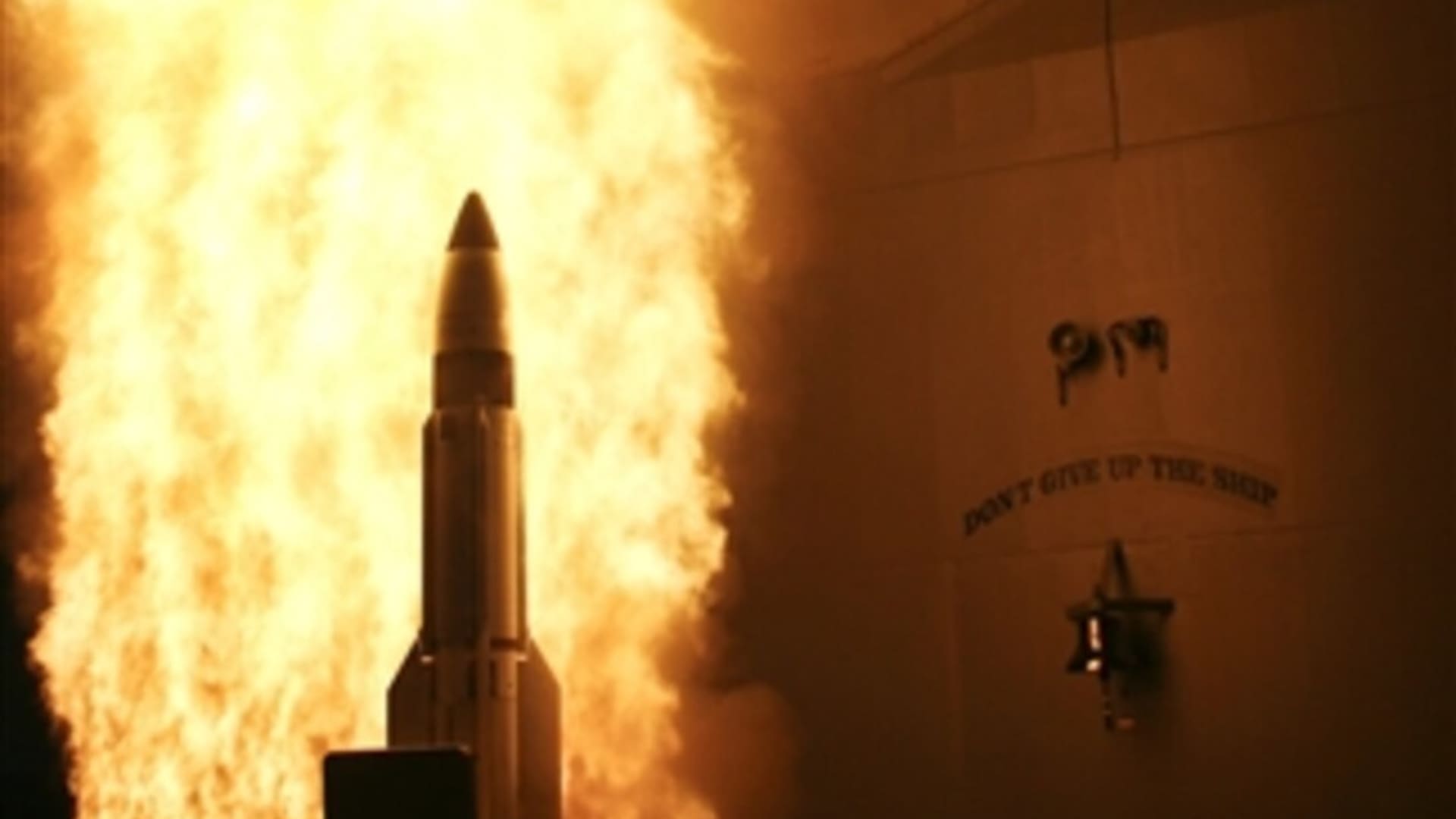
A Standard Missile-3 (SM-3) launches from the U.S. Navy’s USS Lake Erie at a non-functioning National Reconnaissance Office satellite on Feb. 20, 2008 as an anti-satellite weapons
U.S. Department of Defense
The United States government has committed to ending the practice of anti-satellite missile tests, Vice President Kamala Harris announced on Monday, urging other nations to follow its lead.
An anti-satellite weapons, or ASAT, test is a military demonstration in which a spacecraft in orbit is destroyed using a missile system. Countries performing ASAT tests historically have done so by targeting their own assets in space.
Plans for the move were set late last year, after the Russian military destroyed a defunct satellite with an ASAT on Nov. 15. The Russian test created thousands of pieces of debris in low Earth orbit, and sent astronauts on the International Space Station into shelter as it passed through the shrapnel field.
During Harris’ first meeting in December as chair of the National Space Council, the vice president directed the group to work with other agencies and create proposals that would establish new national security norms in space.
The U.S. ASAT commitment, which coincides with Harris’ tour of Vandenberg Space Force Base in California on Tuesday, marks the first step of that effort. The White House stressed that “the United States is the first nation to make such a declaration” to end such testing.
To date, four countries — the U.S., Russia, China and India — have destroyed their own satellites in ASAT tests. The U.S. last destroyed a satellite in 2008, with the U.S. Navy launching a modified SM-3 missile that intercepted the malfunctioning National Reconnaissance Office satellite USA-193.
Separately, the White House has continued to promote the Artemis Accords, an international agreement on space cooperation drafted by NASA and the State Department during the Trump administration. To date, 18 countries have signed the accords, with nine joining since President Joe Biden took office.





